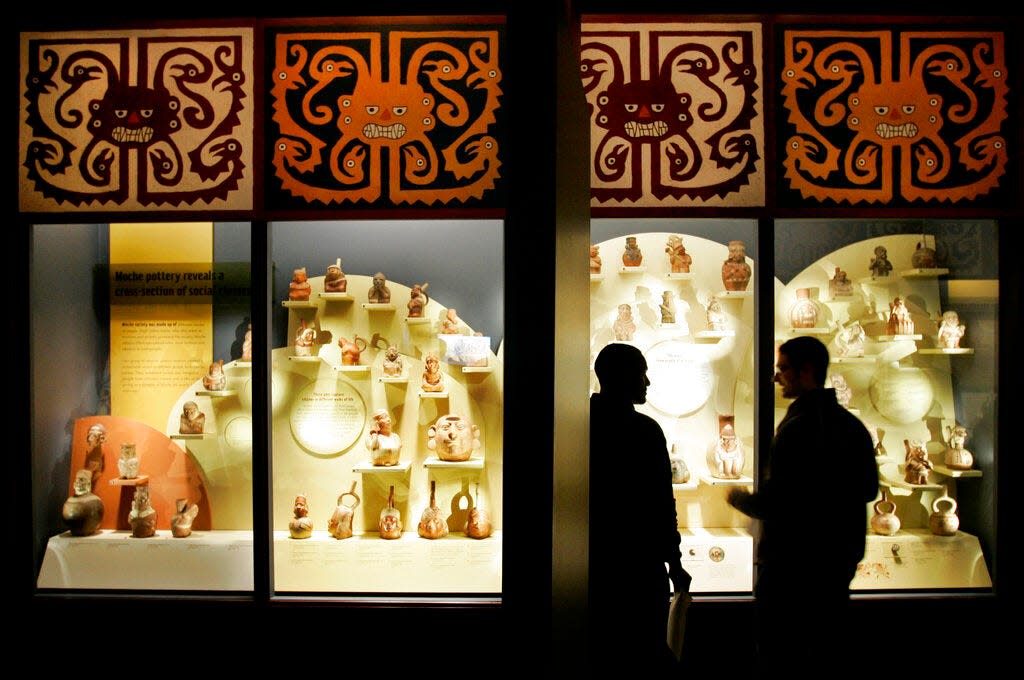Chicago museum covers up Native American displays as new rules go into effect

Chicago's Field Museum covered up displays featuring Native American cultural objects amid new rules.
The new regulations require institutions to obtain consent from tribes before displaying Native items.
The rules are part of a decades-long call for the repatriation of Native remains and cultural objects.
The Field Museum in Chicago has covered up several displays featuring Native American cultural items as new federal regulations go into effect.
The Native American Graves Protection and Repatriation Act was established in 1990 to facilitate the protection and return of Native remains and cultural objects. New rules requiring museums to obtain consent from tribes before displaying these objects went into effect on Friday.
"Pending consultation with the represented communities, we have covered all cases that we believe contain cultural items that could be subject to these regulations," the Field Museum wrote in a statement announcing its decision.
The Field Museum, among the largest natural history museums in the world, has one of the biggest collections of Native remains in the country, federal data from 2023 show. However, it does not have any human remains on display, according to the museum.
For years, tribal officials and repatriation activists have called for the speedier return of Native remains and objects. Archaeologists and museum collectors looted tribal remains from ancient graves, homes, and worship sites throughout the 1800s, when the US pushed Native Americans from their homes.
Museums across the nation have had to decide whether to remove Native objects to comply with the new rules or risk violating them by leaving the objects on display. The Peabody Museum of Archaeology and Ethnology at Harvard University, which still holds onto thousands of Native American remains, has not announced how it will respond to the latest regulations.
The new rules are the latest effort by the federal government to ensure museums are giving tribes the proper consideration over Native objects.
"If people were treating that relationship with respect in the first place, there probably wouldn't be a need for the rule," Bryan Newland, assistant secretary for the Association on American Indian Affairs, told The New York Times.
Read the original article on Business Insider

 Yahoo News
Yahoo News 
